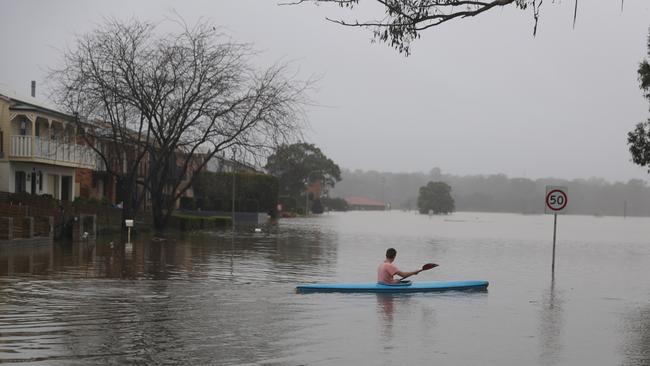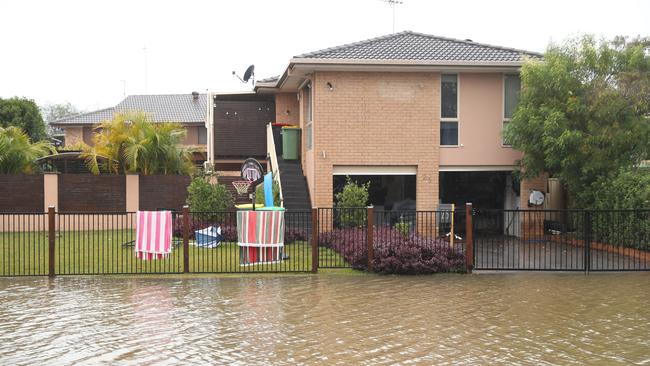Sydney Water asks Western Sydney to reduce water use as filtration system works overtime
Residents from 34 Western Sydney suburbs have been asked to limit their water usage as heavy rainfall and major flooding sweeps the east coast.
NSW
Don't miss out on the headlines from NSW. Followed categories will be added to My News.
Sydney Water has urged residents from flood-affected suburbs in Western Sydney to reduce their water usage over fears that recent heavy rainfall will impact on clean water.
The alert applies to homes and businesses in Caddens, Cambridge Gardens, Cambridge Park, Castlereagh, Claremont Meadows, Colyton, Cranebrook, Dunheved, Emu Heights, Emu Plains, Erskine Park, Glenmore Park, Jamisontown, Jordan Springs, Kingswood, Kingswood Park.
It also includes Lemongrove, Leonay, Llandilo, Londonderry, Mt. Pleasant, North St. Mary’s, Orchard Hills, Oxley Park, Penrith Quarry Hill, Regentville, Ropes Crossing, South Penrith, St. Clair, St. Marys, Werrington, Werrington County and Werrington Downs.
The company has released a statement asking people living in these areas to limit the amount of water they use in the coming days as filtration systems are working overtime to filter and clean the raw water to make it safe.

“Heavy rain and floods have swept high volumes of leaves, dirt, and other debris into the raw water catchment, making the usual demand for drinking water more difficult to meet. This has posed significant challenges for our Orchard Hills water filtration plant,” the statement read.
“As such, we are asking residents in this catchment area to reduce their water usage while our filtration systems are working harder than usual.”

In the same notice, residents were reassured that water currently coming from their taps is safe to drink and that the alert was an effort to conserve supply.
“We understand Warragamba Dam is full and spilling at record rates, so it seems strange to ask our customers to voluntarily conserve water, but this helps us ensure a consistent supply,” General Manager Customer Delivery Bernie Sheridan said.
“I really need to stress that the drinking water is clean, it is simply that the system’s ability to produce drinking water is slower than normal.
“All of our teams are working overtime due to very large levels of silt and debris entering our system which ultimately slows down our ability to clean our water supply and provide clean drinking water to our customers.”
People are also urged to reduce non-essential water use such as hosing down their driveways post-floods and engage in water conservation practices such as taking shorter showers.
More Coverage
Originally published as Sydney Water asks Western Sydney to reduce water use as filtration system works overtime




